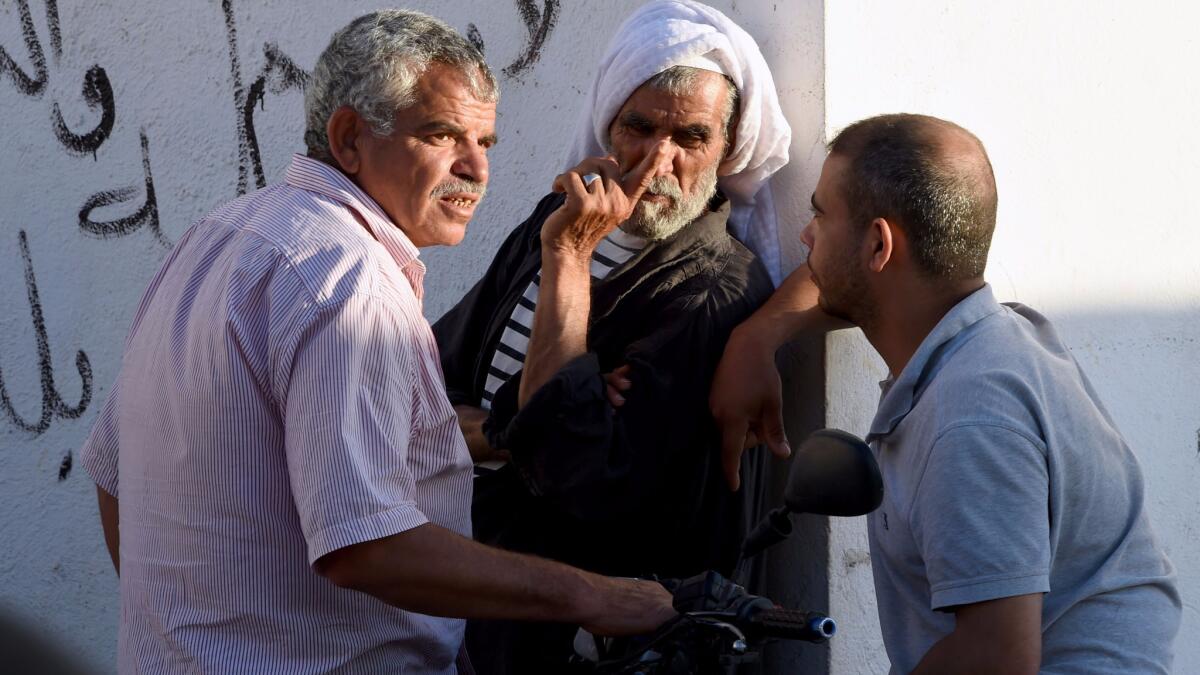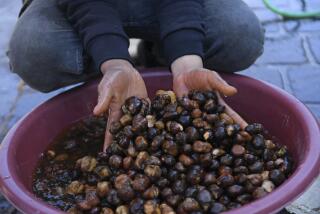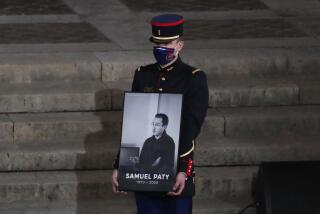In Nice attacker’s hometown, residents insist: ‘We are not Daesh!’

In this nondescript Tunisian suburb, friends and family members of the man who drove a truck into a crowd of French revelers are at a loss to explain how one of their own could have been responsible for a deadly attack claimed by Islamic State.
“We are not Daesh! We are not Daesh! You must write that,” neighbor Mohammed Dahmoul shouted at reporters outside the family home, using the Arabic acronym for the militant group.
Msaken, an affluent community about six miles from the coastal resort city of Sousse, is not known as a hotbed of extremism. News that Mohamed Lahouaiej Bouhlel, a 31-year-old Tunisian emigre, had been identified as the perpetrator of Thursday’s carnage in Nice came as a shock.
The people here are more interested in socializing and making money than in remodeling the world according to a bloodily fundamentalist interpretation of Islam, said a government official who asked to be identified only as Mehjed, because he was not authorized to speak to the media.
The suburb has wide boulevards and cafes accented in chrome. Many cars carry the number 06 license plates of Alpes-Maritimes, an indication of the number of locals who have found work in the French region to which Nice belongs.
Those who knew Bouhlel say he showed no signs of radicalization before he left for France around 2005.
“He was a normal boy, happy,” said Hedi Garmoul, who was among a group of friends and neighbors gathered Saturday at the family home, a two-story, white stucco house set amid a maze of narrow streets.
“For his father, he was a treasure, but everything changed when he went to France.”
Bouhlel’s father, Mohamed Mondher Lahouaiej Bouhlel, described a troubled young man, “always alone, always depressed,” but one with “no connection with religion.”
“He did not go to prayer; he did not fast; he drank alcohol; he even took drugs,” the father told Agence France-Presse news agency.
Between 2002 and 2004, Bouhlel suffered a mental breakdown that required medical treatment.
“He screamed, he broke everything he found in front of him,” the father said.
After he recovered, the young man moved to France, where the family hoped he would make a fresh start. He found work as a delivery-truck driver and married a Franco-Tunisian woman, with whom he had three children.
But he was not on good terms with the woman, according to the father. The French authorities said there were charges of domestic violence.
It remains unclear what, if any ties Bouhlel had to the militants blamed for a series of high-profile attacks in Europe and elsewhere around the world. A news agency affiliated with the group claimed Saturday that Bouhlel was a “soldier” of Islamic State, but there is no evidence that it directed Thursday’s attack.
Before last week, Bouhlel was not known to have any links to terrorist groups and was not on the radar of the French intelligence services.
“We know now that the killer was radicalized very quickly,” the French prime minister, Manuel Valls, told reporters Saturday.
Msaken has reason to resent the association. It was near Sousse that Seifeddine Rezgui, a militant from the Tunisian interior, killed dozens of tourists on a beach, dealing a body blow to the region’s thriving tourism industry.
After Thursday’s bloodshed, many here worry that there will be a backlash against the large North African community in Nice and other French Riviera cities.
Ben Mohamed Ben Abdeljalil, who was drinking coffee with friends at one of Msaken’s popular cafes Saturday, is afraid for the safety of a brother in Nice.
“This will make it bad,” he said. “This will make it very bad.”
Still, those gathered outside the family home insist they will stand by the Bouhlels.
“We are a close neighborhood. Everyone knows everyone. We are a family,” said Garmoul, gesturing toward the surrounding streets before drawing the fingers of each hand together.
“We will support the family -- but not what their son did.”
Cordall is a special correspondent.
ALSO
Nice’s Promenade des Anglais reopens, drawing throngs of mourners
Why France has a more fraught relationship with its Muslim communities than the U.S.
Perpetrator of Nice terror attack asked for ‘more weapons’ before rampage began, authorities say
More to Read
Start your day right
Sign up for Essential California for news, features and recommendations from the L.A. Times and beyond in your inbox six days a week.
You may occasionally receive promotional content from the Los Angeles Times.






